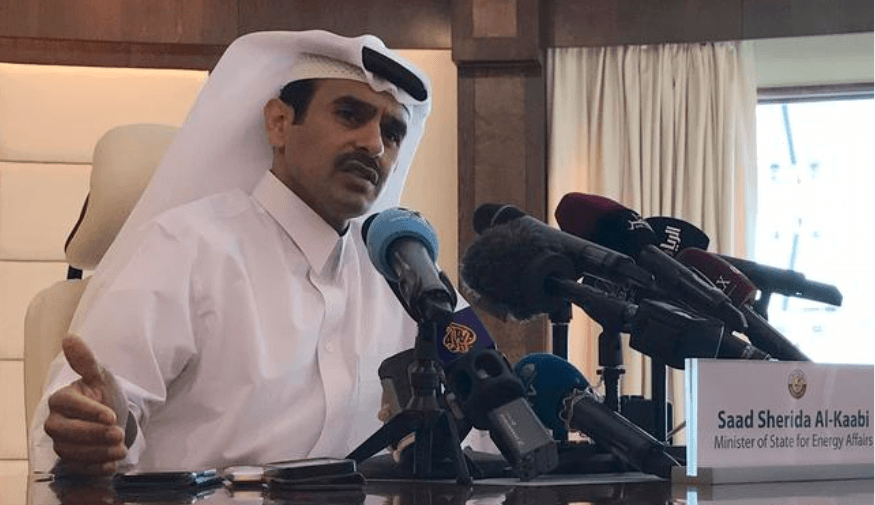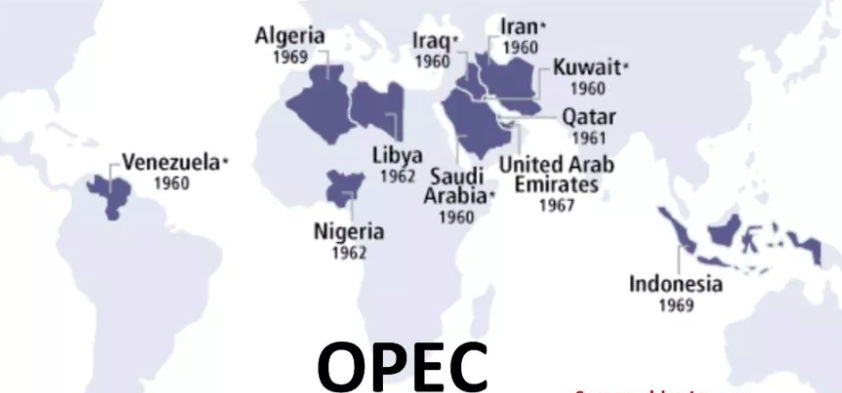Qatar Withdraws from OPEC
December 6, 2018 | Expert Insights

Qatar will withdraw from OPEC in January 2019. The government said the decision was driven by Qatar's long-term plans to increase its liquefied natural gas (LNG) output to 110 million tons by 2024 from 77 million today, consolidating Qatar's position as the world biggest LNG exporter.
Background
The Organisation of the Petroleum Exporting Countries is an intergovernmental organisation of 15 nations, founded in 1960 in Baghdad by the first five members (Iran, Iraq, Kuwait, Saudi Arabia, and Venezuela), and headquartered since 1965 in Vienna, Austria. As of September 2018, the 15 countries accounted for an estimated 44 percent of global oil production and 81.5 percent of the world's "proven" oil reserves, giving OPEC a major influence on global oil prices that were previously determined by the "Seven Sisters” grouping of multinational oil companies. The stated mission of the organisation is to "coordinate and unify the petroleum policies of its member countries and ensure the stabilisation of oil markets, in order to secure an efficient, economic and regular supply of petroleum to consumers, a steady income to producers, and a fair return on capital for those investing in the petroleum industry. The organisation is also a significant provider of information about the international oil market. The formation of OPEC marked a turning point toward national sovereignty over natural resources, and OPEC decisions have come to play a prominent role in the global oil market and international relations. The effect can be particularly strong when wars or civil disorders lead to extended interruptions in supply. In the 1970s, restrictions in oil production led to a dramatic rise in oil prices and in the revenue and wealth of OPEC, with long-lasting and far-reaching consequences for the global economy. In the 1980s, OPEC began setting production targets for its member nations. Generally, when the targets are reduced, oil prices increase. This has occurred most recently from the organization's 2008 and 2016 decisions to trim oversupply.
The current OPEC members are: Algeria, Angola, Ecuador, Equatorial Guinea, Gabon, Iran, Iraq, Kuwait, Libya, Nigeria, Qatar, the Republic of the Congo, Saudi Arabia (the de facto leader), United Arab Emirates, and Venezuela. Indonesia is a former member, and Qatar will no longer be the member of OPEC starting on 1 January 2019.

Analysis
Qatar will withdraw from the Organization of the Petroleum Exporting Countries (OPEC), the Gulf nation's Energy Minister Saad Sherida al-Kaabi announced. The decision to quit the bloc of 15 oil-producing countries that account for a significant percentage of the world's oil production was confirmed by Qatar Petroleum, the state oil company, on 3 December.
Speaking at a news conference in the capital Doha, al-Kaabi said: "The withdrawal decision reflects Qatar's desire to focus its efforts on plans to develop and increase its natural gas production from 77 million tonnes per year to 110 million tonnes in the coming years.”
Qatar has oil output of only 600,000 barrels per day (bpd), or just under 2 percent of OPEC's total output, compared with 11 million bpd produced by Saudi Arabia, the group's biggest oil producer and world's biggest exporter. Since 2013, the amount of oil Qatar produces has fallen from 728,000 barrels per day in 2013. Total OPEC production, meanwhile, has increased from 30.7 million bpd to 32.4 million bpd. Qatar is the first Gulf country to leave the bloc of oil-producing countries.
Qatar is the world's biggest supplier of liquefied natural gas (LNG), producing almost 30 percent of the world total. Energy Minister Al-Kaabi said that the decision to increase the supply of natural gas is to "develop a future strategy based on growth and expansion, both in its activities at home and abroad.”
Counterpoint
The Gulf country's government has said the move is mainly for economic reasons, but dramatically deteriorating ties with some of its neighbours has also played a significant role. Some see the decision as largely symbolic, and consistent with diverging political and economic interests between Qatar and Saudi Arabia. Experts believe that Qatar would not leave OPEC if there was no blockade on the country.
Assessment
Our assessment is that there will be limited fallout from the Qatari decision to leave OPEC. We believe the decision reflects that the direction of oil is being set by the decisions taken by the US, Russia and Saudi Arabia. In our opinion, Qatar’s move sends a political signal, given its dire relations with Saudi Arabia. Regardless, it is reasonable to focus on natural gas which brings in almost 3 times the revenue compared with crude oil.
India Watch
India aims to more than triple its LNG imports to 70 mln T/year. India has four terminals to receive liquefied natural gas (LNG) and imports around 20 million tonnes of the super-chilled fuel a year. Over the next seven-year the government plans to build another 11 terminals and to raise the share of natural gas in its energy mix to 15 percent by 2022 from about 6.5 percent now. This would make India an important market for Qatar.








Comments